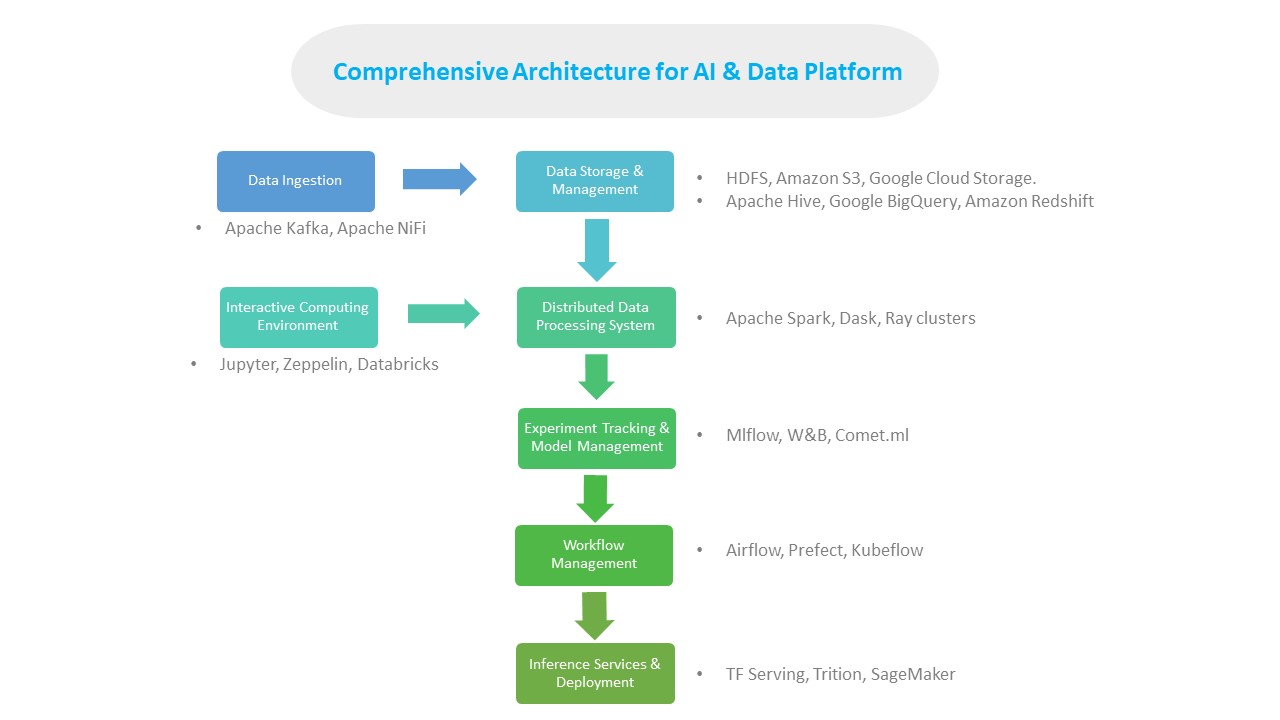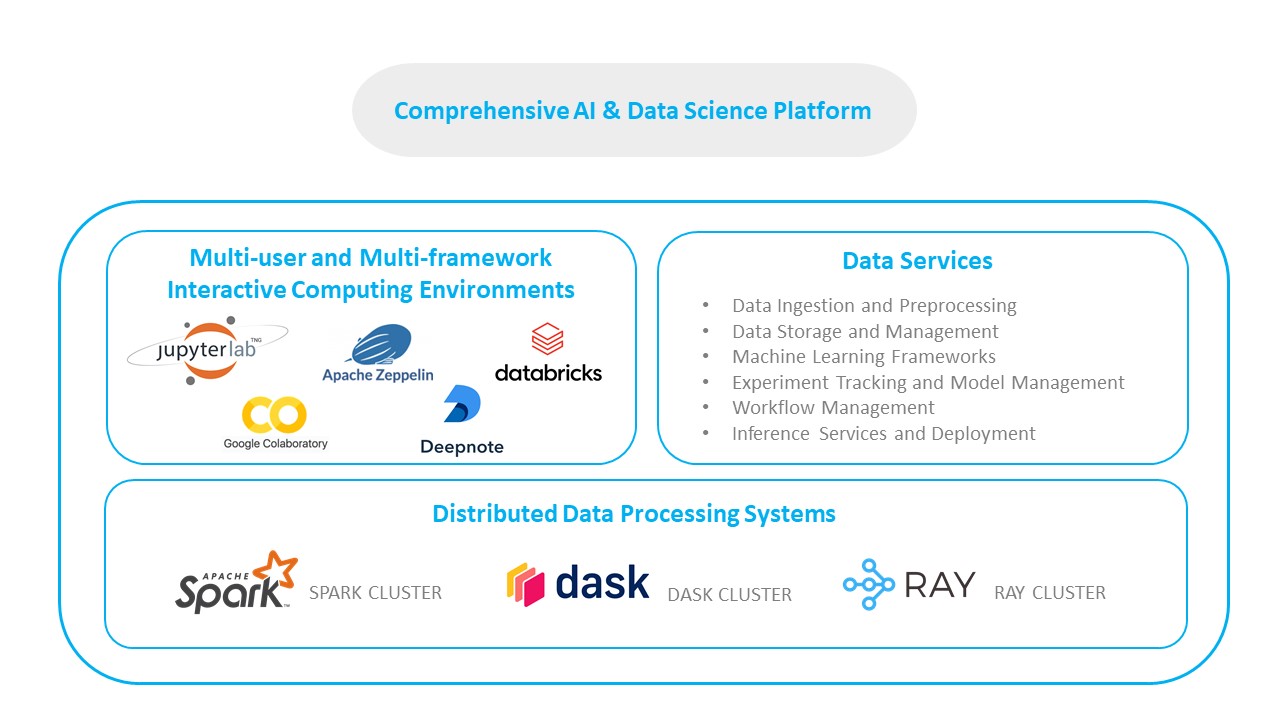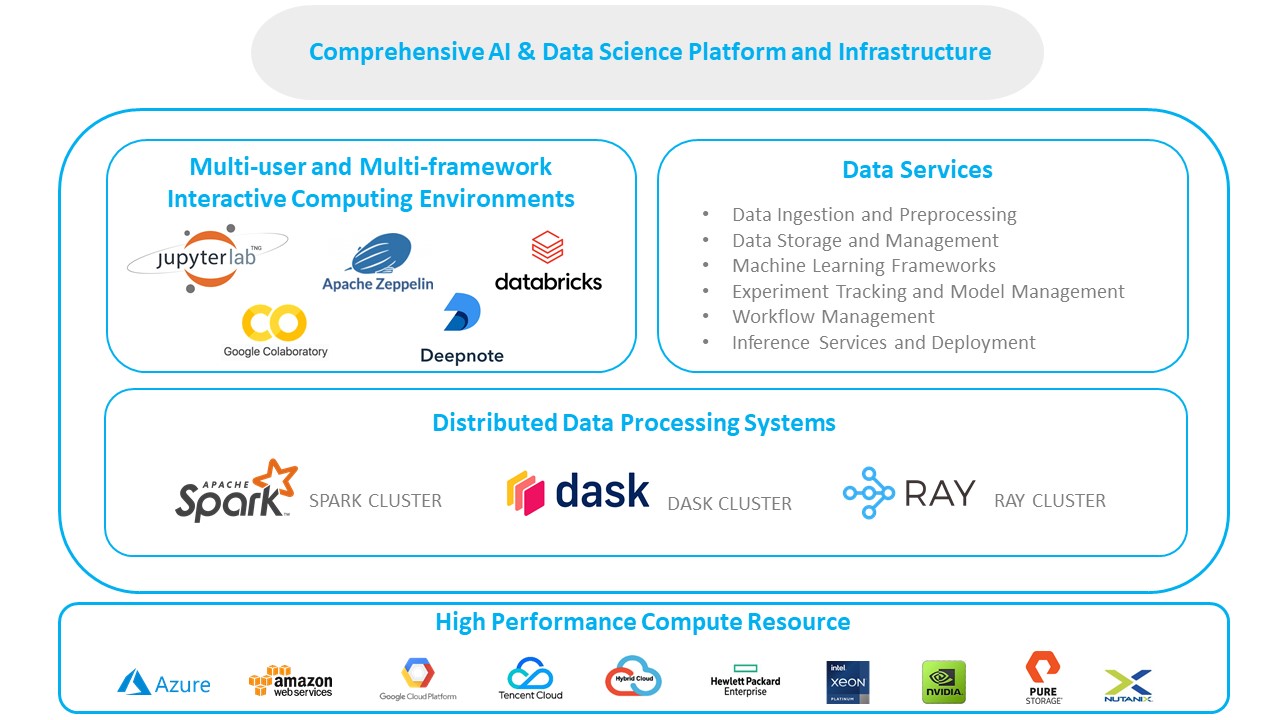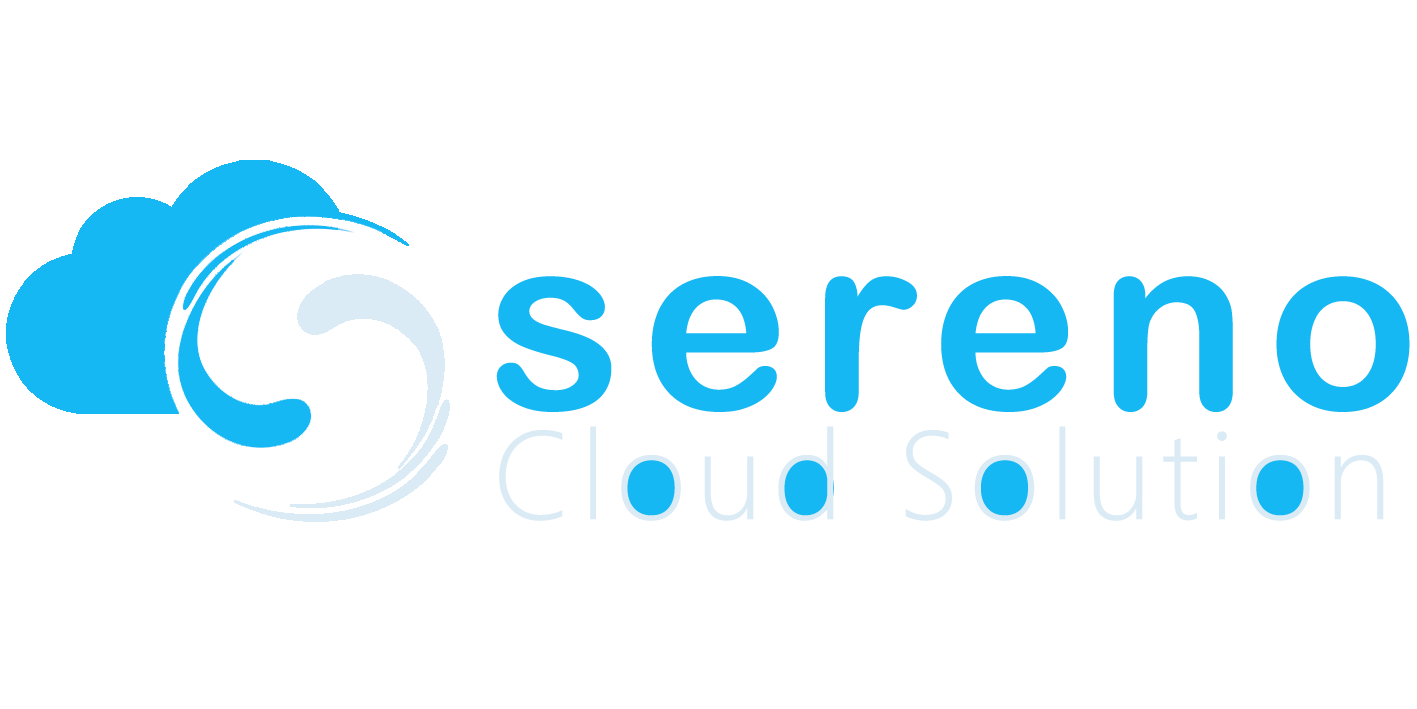
An AI and data science platform is a comprehensive solution that provides tools, services, and infrastructure for developing, deploying, and managing artificial intelligence (AI), machine learning (ML), and data science projects. These platforms aim to streamline the end-to-end process of working with data, from ingestion and preprocessing to model training, evaluation, deployment, and monitoring. They often include features for collaboration, experiment tracking, and workflow management, making it easier for teams to work together on complex projects.

Key components of an AI and data science platform typically include:
- Data ingestion and storage: Tools for importing and storing data from various sources, including databases, data warehouses, and streaming data.
- Data preprocessing and transformation: Tools for cleaning, reshaping, and transforming data to prepare it for analysis and modeling.
- Interactive computing environment: An interface, such as notebooks or integrated development environments (IDEs), for writing and executing code, exploring data, and visualizing results.
- Distributed processing: Support for distributed data processing frameworks like Apache Spark, Hadoop, or Dask, which enable large-scale data analysis and processing.
- Model training and evaluation: Tools and libraries for training, evaluating, and fine-tuning machine learning models, including support for popular ML frameworks like TensorFlow, PyTorch, and scikit-learn.
- Experiment tracking and management: Features for tracking and organizing experiments, model versions, and metadata, making it easier to compare and reproduce results.
- Workflow management: Tools for scheduling, orchestrating, and automating workflows, such as ETL processes, model training pipelines, and deployment tasks.
- Model deployment and inferencing: Services for deploying, serving, and monitoring machine learning models in production, including support for batch and real-time inferencing.
- Collaboration and access control: Features that enable teams to work together, share resources, and control access to projects, data, and models.

An AI and data science platforms can be implemented either in on-premise or cloud:
- Sereno Cloud App360 AI & Data Science Platform : A unified analytics platform that combines Apache Spark, Delta Lake, and MLflow for big data processing, data storage, and machine learning.
- Google Cloud AI Platform: A suite of services and tools for building, deploying, and managing AI and ML projects on Google Cloud.
- Amazon SageMaker: A fully managed service for building, training, and deploying machine learning models on AWS.
- Microsoft Azure Machine Learning: A cloud-based service for building, training, and deploying ML models on Azure.
- Databricks on Azure/AWS/GCP : A unified analytics platform that combines Apache Spark, Delta Lake, and MLflow for big data processing, data storage, and machine learning.
The choice of a suitable AI and data science platform depends on factors such as the specific requirements of the project, the size and expertise of the team, and the available budget and infrastructure

AI and data science platforms can be used across a wide range of industries and applications. Here are some common use cases:
- Predictive analytics: Businesses and organizations can use AI and data science platforms to analyze historical data and build predictive models to forecast future trends, customer behavior, or equipment failures. This can help optimize operations, improve customer targeting, and reduce costs.
- Fraud detection and risk management: Financial institutions, insurance companies, and online businesses can use AI and data science platforms to identify patterns of fraud, assess credit risk, and detect anomalies in transactions. This can help prevent financial losses and ensure regulatory compliance.
- Natural language processing (NLP): Companies can leverage AI and data science platforms to analyze and understand unstructured text data, like customer reviews, social media posts, or support tickets. NLP techniques can help extract insights, perform sentiment analysis, or automate customer support through chatbots.
- Computer vision: AI and data science platforms can be used to train and deploy computer vision models for tasks like image recognition, object detection, and facial recognition. These models can be applied in various industries, such as healthcare (medical image analysis), retail (inventory management), and autonomous vehicles (navigation and obstacle detection).
- Recommendation systems: E-commerce, streaming services, and content platforms can use AI and data science platforms to develop personalized recommendation systems. These systems analyze user behavior, preferences, and content metadata to provide tailored content suggestions, enhancing user engagement and satisfaction.
- Supply chain optimization: AI and data science platforms can help companies optimize their supply chain by forecasting demand, managing inventory, and identifying bottlenecks. This can lead to reduced costs, improved efficiency, and better customer service.
- Healthcare and drug discovery: AI and data science platforms can be used to analyze medical records, genomic data, and medical images to improve patient care, identify potential drug targets, and accelerate drug discovery.
- Energy management and optimization: AI and data science platforms can help utilities and energy companies optimize power generation, distribution, and consumption, through demand forecasting, equipment monitoring, and smart grid management.
- Manufacturing and industrial automation: AI and data science platforms can be used to monitor equipment performance, predict maintenance needs, and optimize production processes in manufacturing and industrial settings.
- Smart cities and transportation: AI and data science platforms can help city planners, transportation agencies, and urban developers analyze data from various sources, such as traffic sensors and social media, to optimize urban planning, traffic management, and public transportation.
These are just a few examples of the many possible use cases for AI and data science platforms. The versatility of these platforms allows them to be applied across various domains and industries, helping organizations leverage data and machine learning to drive innovation, efficiency, and growth.
